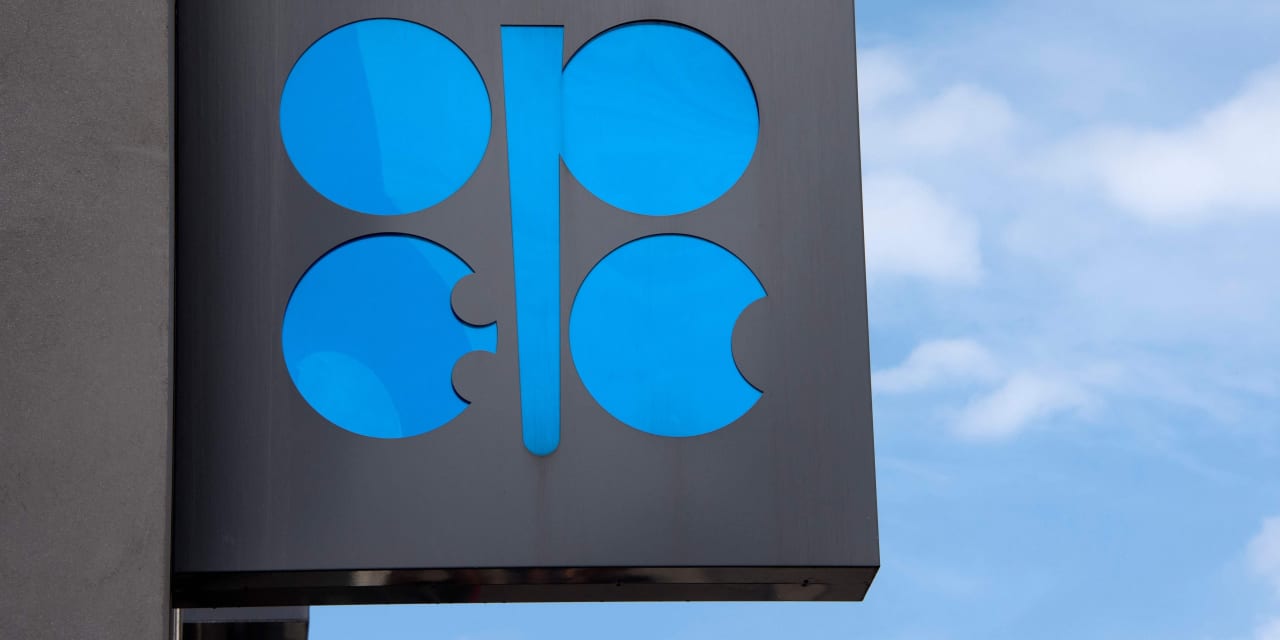It’s a bit surprising to see oil prices decline sharply after major oil producers pledged additional production cuts for the first quarter of next year, but that’s exactly what happened Thursday following a much-anticipated OPEC+ meeting.
Analysts said the voluntary nature of those added reductions had spawned skepticism over whether they will actually be delivered.
“What the market was hoping for was a unified voice on agreed-upon cuts,” Stewart Glickman, energy equity analyst at CFRA Research, told MarketWatch. “It sounds like it will be up to each voluntary contributor, and that brings up the issue of discipline,” he said.
The group of major oil producers, at first, did not mention additional reductions to production levels when it made its statement at the end of its ministerial meeting Thursday. Another press release followed, detailing voluntary cuts announced by OPEC+ members that would total more than 2 million barrels a day, or mbd, though that includes the extension of a 1 mbd cut by Saudi Arabia and a 300,000 barrels a day reduction in crude supplies by Russia. Russian fuel exports will also be reduced by 200,000 bpd starting in January.
Also, Brazil is set to join OPEC+ in January.
“So far, it does not look as though there is an ironclad agreement to abide by what they pledge and it evokes the post meeting atmosphere from years ago when various members would ‘leak’ beyond their quotas,” Tom Kloza, global head of energy analysis at OPIS, a Dow Jones company, told MarketWatch.
“We’ll see if they issue something with more teeth but in the absence, the market is likely to wobble in the mid-$70s for WTI and the low $80s for Brent,” said Kloza.
Oil prices on Thursday finished lower. January West Texas Intermediate crude
CL.1,
CLF24
fell $1.90, or 2.4%, to settle at $75.96 a barrel on the New York Mercantile Exchange.
January Brent crude
BRNF24,
which expired at the end of the trading session, settled at $82.83 a barrel on ICE Futures Europe, down 27 cents, or 0.3%. The most-active February Brent contract
BRN00,
BRNG24
settled at $80.86, down $2.02, or 2.4%.
“Certainly no panacea for OPEC+ at this meeting,” said Kloza.
News reports ahead of the meeting had said that the group agreed in principle to an additional production cut of up to 1 mbd, on top of the voluntary reduction by the Saudis. Analysts said the lack of detail on the voluntary cuts in the initial OPEC+ news release may have sparked some disappointment among traders.
“The voluntary cuts have nothing to do with the organization or with the coalition,” so each country separately started announcing its pledge for voluntary cuts, said Anas Alhajji, an independent energy expert and managing partner at Energy Outlook Advisors.
“These voluntary cuts are calculated from the 2024 required production level” agreed upon at the June 4, 2023 meeting and are in addition to the voluntary cuts previously announced in April 2023, which were later extended until the end of 2024, OPEC+ said.
“In order to support market stability, these voluntary cuts will be returned gradually subject to market conditions,” it said.
Meanwhile, the addition of Brazil to OPEC+ starting in January “merely means there are some other mouths to feed and other bureaucrats to please,” Kloza said.
“The addition of Brazil to OPEC+ in January “merely means there are some other mouths to feed and other bureaucrats to please.””
Overall, OPEC acknowledges concerns over demand in 2024, but “we did not get certainty in the response, and so going forward there is a bit of skepticism here on whether the voluntary contributors will actually follow through,” said CFRA’s Glickman.
Read the full article here


